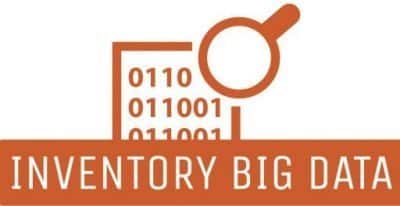Supply Chain Glossary – J Letter
Description
- by delivering materials and products exactly when needed.
- Job Shop: A job shop is a manufacturing facility that produces custom or low-volume products, often with diverse requirements.
- Jidoka (Autonomation): Jidoka is a Lean manufacturing concept that empowers machines to detect and stop production when defects occur.
- Job Rotation: Job rotation involves employees periodically switching roles or tasks within an organization to develop skills and knowledge.
- JIT Inventory System: The JIT inventory system maintains minimal inventory levels to reduce carrying costs while ensuring timely production.
- Just-in-Case Inventory: Just-in-case inventory is a safety stock held to mitigate supply chain disruptions or unpredictable demand spikes.
- Job Costing: Job costing assigns costs to specific projects or jobs, enabling accurate tracking of expenses and profitability.
- Joint Ventures: Joint ventures are partnerships between two or more companies to collaborate on specific projects or ventures.
- Job Enrichment: Job enrichment enhances employee satisfaction by increasing the depth and variety of tasks in a role.
- Johari Window: The Johari Window is a model that helps individuals and teams understand self-awareness and communication.
- Journey Mapping: Journey mapping visualizes the customer experience, identifying touchpoints and opportunities for improvement.
- Job Evaluation: Job evaluation assesses the relative value of different roles within an organization for fair compensation.
- Job Hazard Analysis (JHA): JHA identifies and mitigates workplace hazards to enhance safety in industrial settings.
- Just-in-Sequence (JIS): JIS delivers parts to the assembly line in the exact sequence needed for production, reducing handling and errors.
- Job Satisfaction: Job satisfaction reflects an employee’s contentment with their work, impacting morale and productivity.
- Job Scheduler: A job scheduler automates and optimizes task and process scheduling within industrial operations.
- Joint Production: Joint production occurs when multiple products are produced simultaneously from the same input materials.
- Job Standardization: Job standardization establishes uniform processes and procedures for consistent performance and quality.
- Job Share: Job sharing allows two or more employees to share a single role or position, providing flexibility.
- Job Shop Manufacturing: Job shop manufacturing specializes in producing custom or unique products based on customer specifications.
- Journeyman: A journeyman is a skilled worker who has completed an apprenticeship and is experienced in their craft.
- Job Stress: Job stress results from work-related pressures and demands, impacting employee well-being and performance.
- Job Tracking: Job tracking monitors the progress of tasks, orders, or projects to ensure they stay on schedule.
- JIT Supplier: A JIT supplier delivers materials or components to manufacturers on a just-in-time basis to support production.
- Job Cost Analysis: Job cost analysis examines the expenses and revenues associated with specific projects or jobs.
- Job Rotation Program: A job rotation program systematically rotates employees through different roles to develop cross-functional skills.
- JIT Production Control: JIT production control methods coordinate and optimize manufacturing processes to match customer demand.
- Journeyman Electrician: A journeyman electrician is a certified electrician with advanced skills in electrical installation and maintenance.
- Job Crafting: Job crafting allows employees to customize their roles and responsibilities to align with their strengths and preferences.
- Job Redesign: Job redesign involves restructuring job tasks to enhance efficiency, motivation, and employee engagement.
- JIT Manufacturing System: JIT manufacturing systems focus on producing goods only when there is customer demand to minimize waste and inventory.




